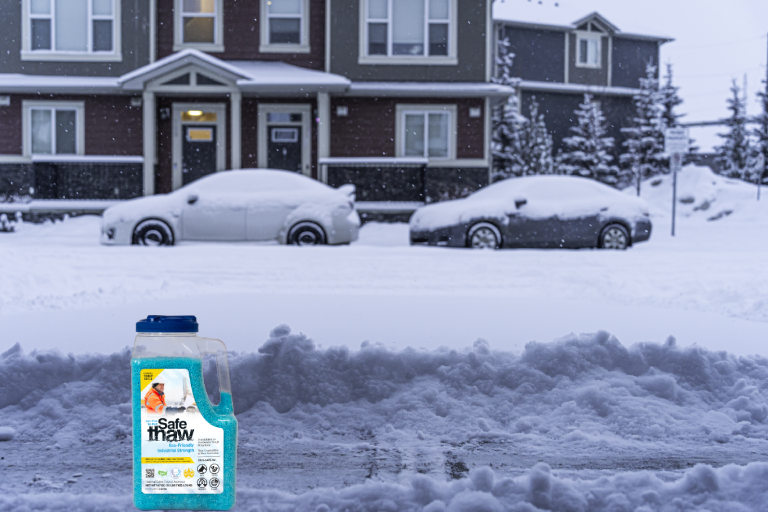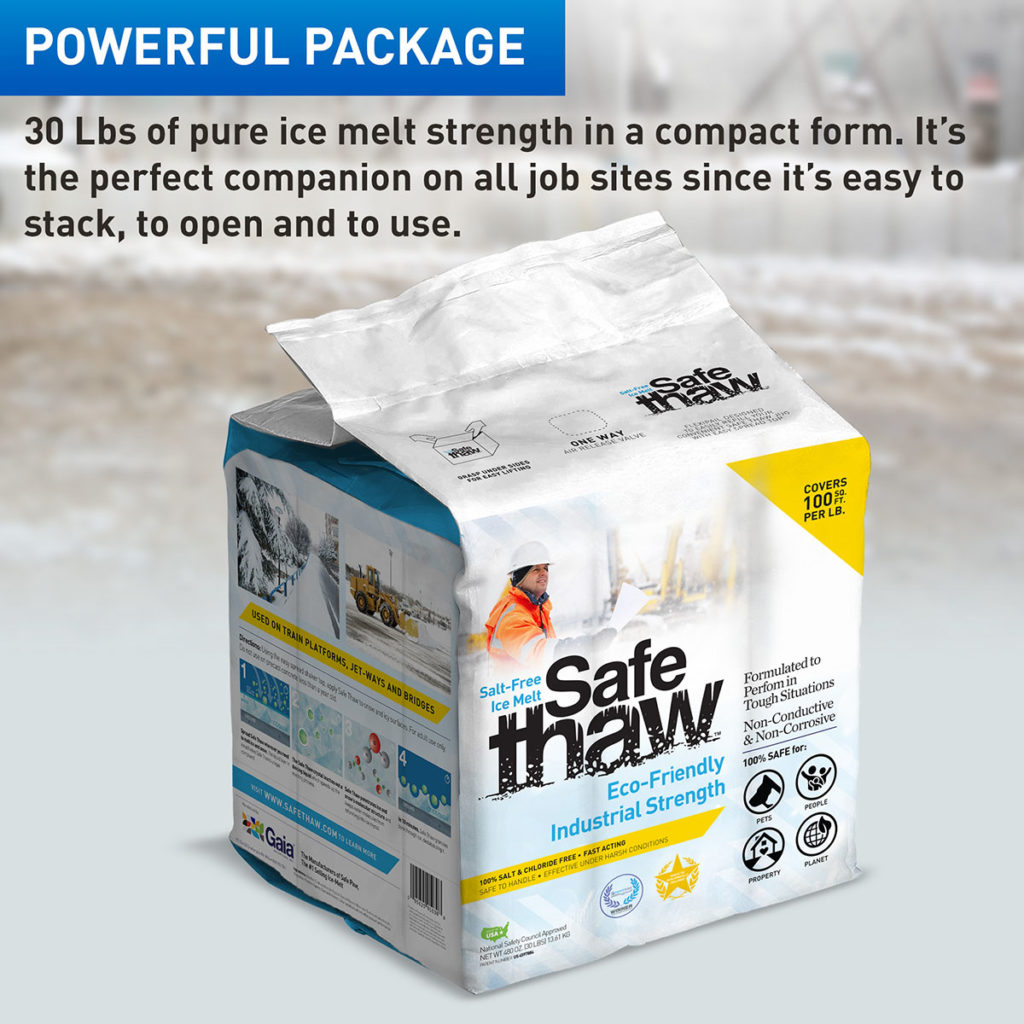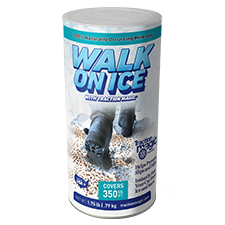Asphalt or Concrete Driveway: Which One is Right for You?

Here you stand, at the crossroads of decision-making, wondering, “Asphalt or concrete driveway, which should I choose?” Choosing the right material for your driveway can seem like a daunting task. Fear not, for this guide will steer you in the right direction!

Safe Thaw
Safe Thaw was created as the ice management solution for tough winter environments. Ideal in commercial and industrial properties, shops, government agencies, bridges, and construction.
Understanding The Beast: Asphalt Driveways
Asphalt, composed of sand, rocks, and bitumen, boasts flexibility. It adapts to temperature fluctuations, resisting cracks during winter’s freeze-thaw cycles. An asphalt driveway sports a sleek black finish, a graceful canvas for your home.
Nevertheless, with the brooding charm comes the necessity of resealing every three to five years. The surface can soften in scorching summers, susceptible to marks from sharp objects or high-heeled shoes. The dark hue also means it absorbs more heat, which could be a downside in warmer climes.
Entering The Realm Of Concrete Driveways
Concrete, a blend of cement, sand, and gravel, ushers in versatility. With concrete, a panorama of colors, textures, and patterns unfolds before your eyes. Want a cobblestone or brick driveway without the accompanying labor? Stamped or patterned concrete might just be your golden ticket!
On the flip side, the rigidity of concrete means it might succumb to cracks in regions with severe winters. The “concrete or asphalt driveway” question gets murkier, doesn’t it? Here’s where a product like Safe Thaw shines, a gentle warrior that combats ice without assaulting your concrete.
Cost Considerations: Asphalt Vs. Concrete
Asphalt typically costs less upfront, but remember the periodic sealing costs. Concrete might pinch your pocket more at the outset but holds the promise of lower maintenance, barring harsh winter regions.
Lifespan And Durability: A Weigh-In
Asphalt driveways may require resurfacing or replacement after 10-20 years, depending on maintenance and climate. Concrete driveways, barring frost-led damages, can laugh in the face of time, serving you well for up to 30-40 years!
The Environmental Angle
The ability to recycle asphalt scores a point for the environment. However, lighter-colored concrete driveways reflect more light and absorb less heat, creating a cooler surrounding.
100% salt & chloride-free, fast acting Ice Management Solution
The Verdict: Tailoring To Your Needs
The “asphalt or concrete driveway” conundrum has no one-size-fits-all answer. Asphalt might be your alley if initial costs or speedy installation are your priority. But, if creative expression, durability, and lower long-term maintenance top your list, concrete could be your winner.
If you live in colder regions, adopting a Safe Thaw routine could extend your concrete driveway’s life, bridging the gap between the two choices. In the end, knowing your budget, climate, aesthetic preferences, and maintenance readiness can guide your choice in this journey.
Remember, every driveway tells a story. Make sure yours reflects your home’s spirit and your wisdom in making material good choices.
Try Also Our Other Winter Safety Products:
Safe Paw
The Original and #1 Selling Pet and Child Safe Ice Melt for over 20 years. Guaranteed environmentally safe –It won’t harm animals or children, and it won’t damage your property. That’s Safe Paw. Safe Paw can change how winter affects our planet.

Walk On Ice
The handy disposable canister can be taken everywhere, with the same 100% naturally occurring minerals that provide instant traction on ice or snow. Use it on sidewalks, steps, or as an instant traction agent for your car.



